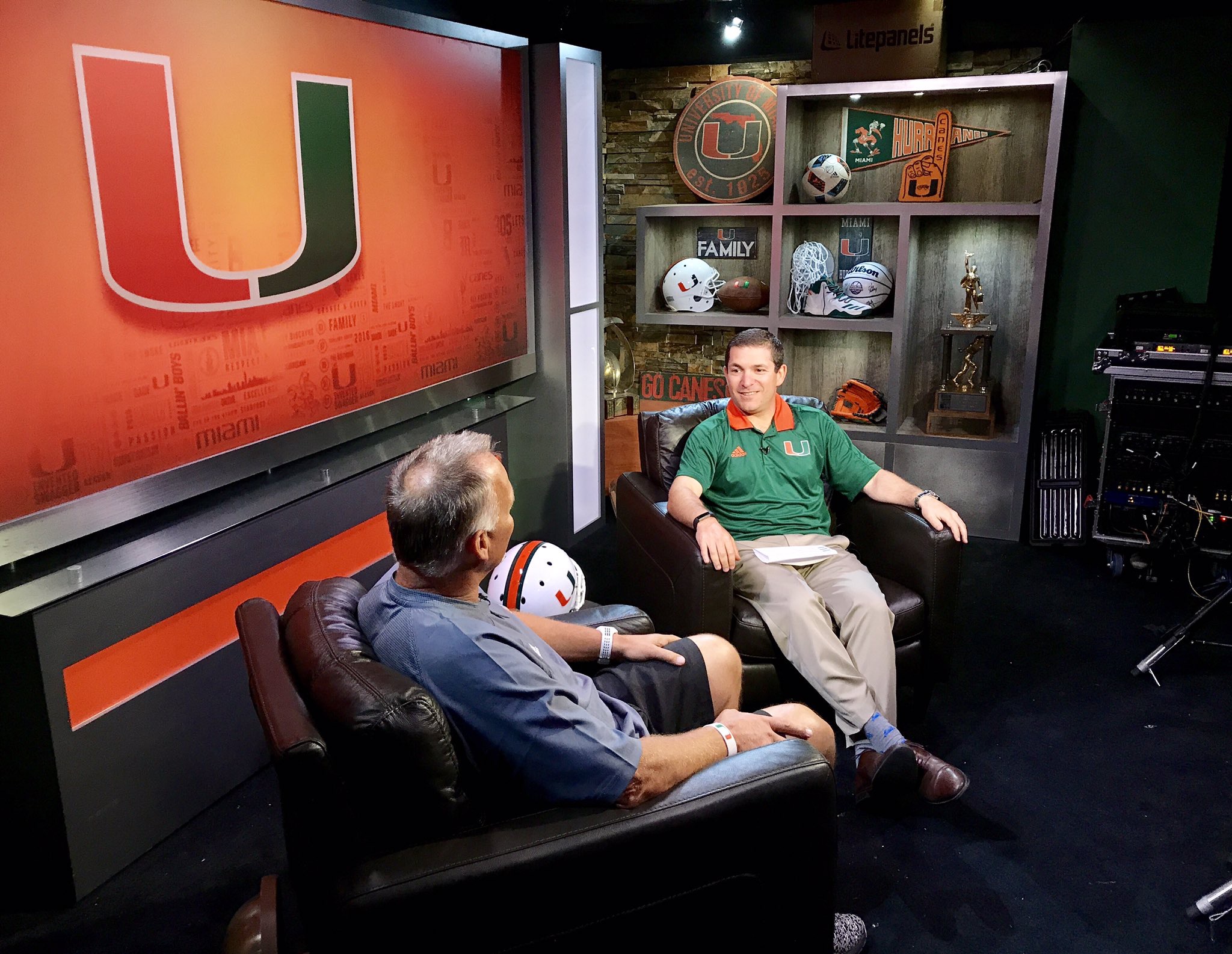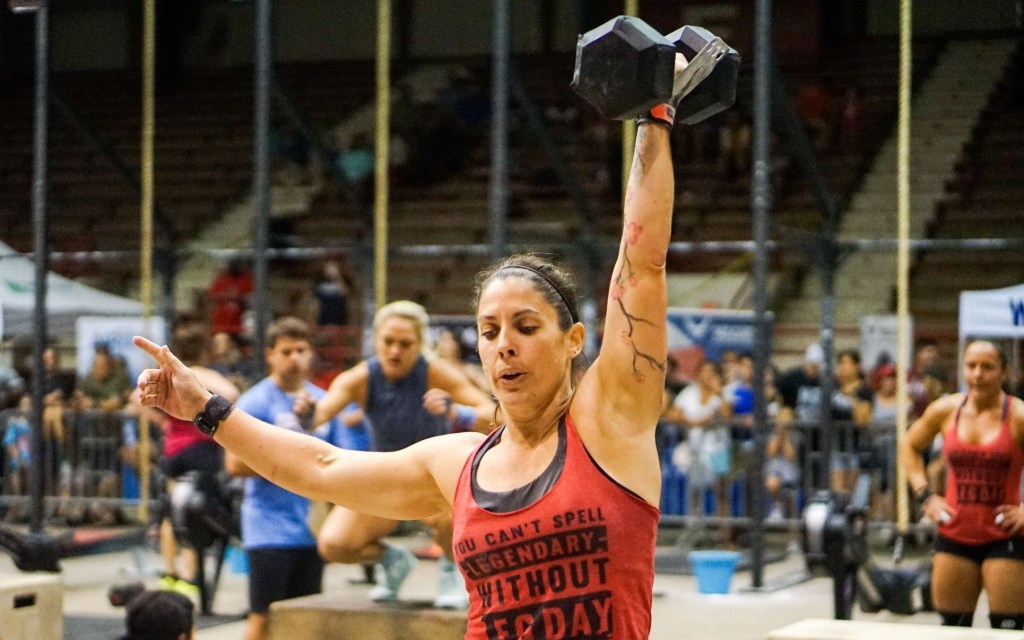
Photo credit: Jesse Marks
Jesse Marks knew he was neglecting himself, but it was for the good of his career.
All would be fine, he thought, because he was advancing in his tenure at the University of Miami Athletic Department.
“We’re all young and we think we’re invincible,” said Marks, senior associate athletic director of development at Miami. “In that span of building my career over 15 years, my health became very low on the totem pole.”
Constantly wining and dining clients and driven by the bottomline, Marks led an extremely unhealthy lifestyle, neglecting his fitness and feasting at top restaurants, always telling himself he’d have time later to make up for the neglect.
Two years ago, before he was able to catch up, his unhealthy lifestyle caught up to him. He wasn’t feeling well. Coworkers and friends told him to get his life in check.
Knowing it had to do with his weight and lifestyle, he wanted to start treating himself right. But something didn’t feel right. He made his way to the new The Lennar Foundation Medical Center on the Miami campus.
READ MORE: 4 Easy Ways to Find Work-Life Balance
“Something told me I shouldn’t just start running and working out, maybe I should get checked out first,” Marks said. “I knew I was overweight. I knew I wasn’t sleeping well, I wasn’t feeling the way I should. But I was still doing well in my career because of my competitive nature and not wanting to be left behind or miss out on any opportunities.”
An echocardiogram revealed his heart was working at 25 percent function, well below the normal 50-to-65-percent range. It turned out he had a congenial heart defect called cardiomyopathy which hampers how well it pumps blood to the rest of the body. The body will try to adapt so long as you don’t stress it, like with pounds of added weight, Marks said.
“You don’t know it’s there until something real bad occurs and that’s how you could have a heart attack and drop dead, especially if you work out when you’re overweight,” Marks said.
His cardiologist, an otherwise friendly doctor put it bluntly to Marks: Diet or die.
“He said it just like that. He told me I did nothing that any other 34-year-old career-oriented person would do as they are moving up the professional ranks, however now was the time to get serious,” Marks said. “I lived my life, but a change had to occur and quickly if I wanted to live a long, rewarding life.”
He completely revamped his diet and focused on working out 30-60 minutes a day. Within a month he was down 30 pounds, and now he’s down 100 pounds with radically improved blood pressure and heart function.
He went to Miami Athletic Director Blake James, and asked for the department’s support in his quest for health. James agreed to Marks’ requests, which included a few mornings off a week, and told him he supported him 100 percent.
James said workplace balance is a key within the Miami athletic department because it “translates to an energetic and productive workplace.
“Our athletic department is a family — we spend a lot of time together and we’re all passionate about what we do,” James said. “Jesse needed some time to address some health issues and, as a member of our family, we wanted to assist him as much as we could.”
[mc4wp_form id=”8260″]
Now that he’s back to a healthy weight and paying attention to himself, Marks won’t let himself fall back into the trappings of a work-dominated life. He’s no longer a puritan in what he eats, yet still keeps it balanced while making time to workout every day, with added efforts on days he know he’s likely to have a little more fun. He also doesn’t want to see others in the sports industry to fall down a similar path.
He said it’s important to make choices in what’s on the plate and to make time to exercise, not just for physical fitness, but mental fitness. A good walk or bike ride can do wonders for creativity, Marks said.
“You don’t want to hit rock bottom, a place where there’s no coming back,” Marks said. “I could have been in heart failure two months later. Everything is balance; I think we lose that working in sports and trying to climb the ladder.”
It’s still hard to look back at his career and say he’d do anything different, and he calls the severe health scare the best thing that’s ever happened to him.
“You physically cannot burn the candle at both ends without taking some time, taking a breath and putting yourself first occasionally,” Marks said. “I’m now in the best shape of my life. I know I’m not just going to have a massive heart attack. I couldn’t have said that two years ago.”
READ MORE: ‘Watering the Grass’: Why Company Culture Matters in Sports Business
Work-life balance has been a growing trend the past several years, breaking generational molds of career-driven lives. Sports have long been one of the worst offenders in driving employees to the brink of exhaustion.
“It happens quick, as soon as you hit the professional world and you are trying to build a career and family, you can lose track of yourself very quickly and not take personal well-being seriously.
“We need to do a better job in this industry,” Marks said. “We should be a model of those we try to affect. We’re here to shape student-athletes; we need to set an example.”




![[Subscription Customers Only] Jun 15, 2025; Seattle, Washington, USA; Botafogo owner John Textor inside the stadium before the match during a group stage match of the 2025 FIFA Club World Cup at Lumen Field.](https://frontofficesports.com/wp-content/uploads/2026/02/USATSI_26465842_168416386_lowres-scaled.jpg?quality=100&w=1024)
![[Subscription Customers Only] Jul 13, 2025; East Rutherford, New Jersey, USA; Chelsea FC midfielder Cole Palmer (10) celebrates winning the final of the 2025 FIFA Club World Cup at MetLife Stadium](https://frontofficesports.com/wp-content/uploads/2026/02/USATSI_26636703-scaled-e1770932227605.jpg?quality=100&w=1024)










